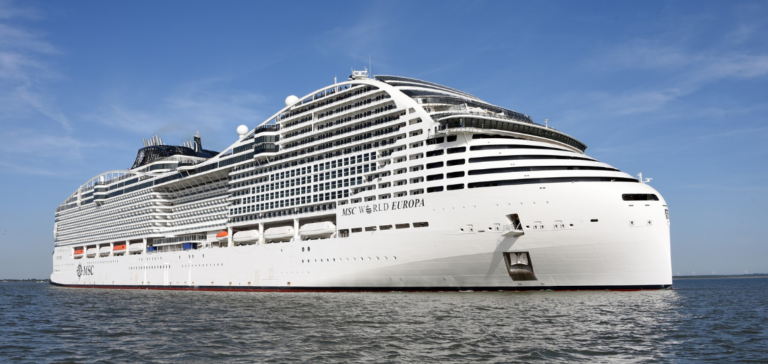The cruise industry, long criticized for its environmental impact, is taking a significant step towards a greener future. Shipowner MSC Crociere has confirmed the purchase of two innovative liners powered by liquefied natural gas (LNG), a less polluting fuel. These ships, provisionally named World Class 3 and 4, are scheduled to enter service in 2026 and 2027 respectively.
A massive investment for sustainable development
This purchase is part of a wider agreement that includes an option for a fifth vessel of the same type. The total investment amounts to 4 billion euros, underlining the company’s substantial commitment to sustainable development. The first ship in this series, the MSC World Europa, already marked a significant step forward when it was delivered in 2022.
Towards greener, more economical ships
According to the shipowner, the new liners will be among the most environmentally friendly in the cruise industry. They will incorporate advanced technologies to maximize energy efficiency, including innovative heat recovery systems. These improvements are designed to further reduce greenhouse gas emissions.
A lasting partnership with Chantiers de l’Atlantique
The 20-year relationship between MSC Cruises and Chantiers de l’Atlantique is strengthened by this order. Pierfrancesco Vago, Executive Chairman of MSC Crociere, expressed his pride in this fruitful collaboration, which has already produced 18 ships, with the 19th currently under construction.
Laurent Castaing, CEO of Chantiers de l’Atlantique, welcomed the order as a breath of fresh air in a difficult context for European shipbuilding. He also pointed out that MSC Crociere had accepted a significant extra cost to improve the energy efficiency of the ships, demonstrating their commitment to more sustainable solutions.
MSC Cruises’ order for two LNG-powered liners marks a major ecological turning point in the cruise industry. The investment reflects both a financial and environmental commitment, incorporating innovative technologies to reduce greenhouse gas emissions.





















